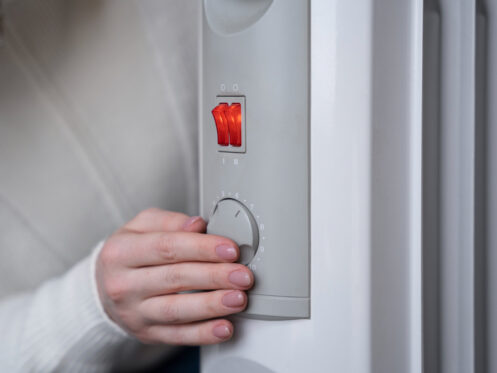Regular water heater maintenance is essential for keeping your home comfortable and your utility bills low. A well-maintained water heater can provide reliable hot water for years while operating efficiently and safely. Without regular upkeep, your water heater might experience reduced efficiency, unexpected breakdowns, and even potential safety hazards.
Neglecting maintenance can lead to sediment buildup, rust, and corrosion inside the tank. These issues can shorten the lifespan of your water heater and impact its performance. By addressing these problems early, you can avoid costly repairs or replacements down the line.
Additionally, maintaining your water heater improves energy efficiency. Simple tasks like flushing the tank and checking the anode rod can make a significant difference. Proper maintenance ensures that your water heater runs efficiently, saving you money on energy bills.
Taking the time to maintain your water heater can also help you avoid unexpected breakdowns. Regular checks allow you to spot minor issues before they become major problems. This proactive approach can save you from the inconvenience and expense of emergency repairs.
Finally, regular water heater maintenance enhances safety and performance. Testing the pressure relief valve, monitoring temperature settings, and ensuring proper ventilation are crucial steps in keeping your water heater operating safely. These measures help prevent accidents and ensure that your water heater functions optimally.
Extending the Lifespan of Your Water Heater
Reducing sediment buildup is one of the most important steps in extending your water heater’s life. Sediments, such as minerals and debris, can accumulate at the bottom of the tank over time. This buildup reduces the efficiency of your water heater and can cause internal damage. Flushing the tank regularly helps to remove this sediment. To do this, turn off the heater, connect a hose to the drain valve, and let the water flow out until it runs clear.
Ensuring efficient operation involves regular checks and maintenance. Make sure the thermostat is set to the recommended temperature, usually around 120 degrees Fahrenheit, to prevent overheating and reduce wear and tear. Additionally, inspect the exterior of the water heater for any signs of rust, leaks, or damage. Addressing these minor issues early before they escalate can keep your water heater functioning properly for a longer time.
Improving Energy Efficiency
Flushing the tank regularly is essential for maintaining energy efficiency. Sediment buildup at the bottom of the tank can act as an insulator, forcing your water heater to work harder to heat the water. By flushing out this sediment, you ensure that your heater operates more efficiently, using less energy to heat the water. This routine task can lower your energy bills and improve the overall performance of your water heater.
Checking the anode rod is another vital maintenance task for energy efficiency. The anode rod helps prevent corrosion inside the tank, which, if left unchecked, can lead to rust and decrease the efficiency of your water heater. By ensuring the anode rod is in good condition, you help maintain optimal heating efficiency and extend the life of your water heater.
Inspecting insulation and seals also plays a critical role in energy efficiency. Check the insulation around the tank and the pipes to ensure they are intact and in good condition. Poor insulation can lead to heat loss and make your water heater work harder. Additionally, inspect the seals and gaskets around the heater for any signs of wear or damage. Replacing damaged insulation and seals can help keep your water heater running efficiently, reducing energy consumption and costs.
Avoiding Unexpected Breakdowns
Identifying minor issues early can save you from dealing with major water heater breakdowns later. Regularly inspect the heater for signs of trouble, such as unusual noises, water discoloration, or inconsistent water temperatures. Addressing these small issues as soon as they appear can prevent more significant problems from developing and ensure your water heater remains reliable.
Performing yearly professional check-ups is another crucial step in avoiding unexpected breakdowns. A qualified technician has the expertise to spot potential issues that you might overlook. They can perform a thorough inspection, including checking electrical connections, testing elements, and ensuring all components function correctly. Scheduling an annual maintenance visit can keep your water heater in optimal condition.
Recognizing signs of wear and tear, such as rust or water leaks around the tank, can indicate that parts of your water heater need attention. Corroded areas or small leaks can quickly escalate into bigger issues if left unaddressed. Regularly inspecting the exterior and any visible plumbing connections allows you to catch and fix problems early, thus avoiding unexpected and costly breakdowns.
Enhancing Safety and Performance
Testing the pressure relief valve is crucial for your water heater’s safety and performance. This valve releases excess pressure from the tank, preventing potential explosions. To test it, carefully lift the valve’s lever and let some water discharge into a bucket. If the valve doesn’t open easily or water continues to flow after you release it, the valve may need replacement.
Monitoring temperature settings is another important task. The ideal temperature for a water heater is around 120 degrees Fahrenheit. Keeping the temperature set correctly prevents overheating, which can cause scalding and increase the risk of damage to the heater. It also ensures that the water heater operates efficiently and safely.
Ensuring proper ventilation is essential for water heaters, especially gas-powered ones. Ventilation helps remove harmful gases produced during the heating process. Inspect the venting system for any obstructions or damages that could impede airflow. Clear any blockages to ensure that gases can escape safely and check that all venting components are securely connected to the heater.
Conclusion
Regular maintenance of your water heater is essential to extend its lifespan, improve energy efficiency, avoid unexpected breakdowns, and enhance safety and performance. Simple tasks like reducing sediment buildup, checking the anode rod, and flushing the tank can significantly improve your water heater’s efficiency and longevity. Conducting yearly professional check-ups and promptly addressing minor issues are proactive measures to keep your water heater in excellent condition.
For expert water heater maintenance and plumbing services, contact our plumbers in West Palm Beach at Legacy Plumbing Experts. Our team is dedicated to providing top-notch service to keep your home’s plumbing in peak condition.

